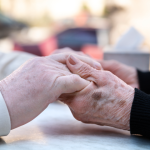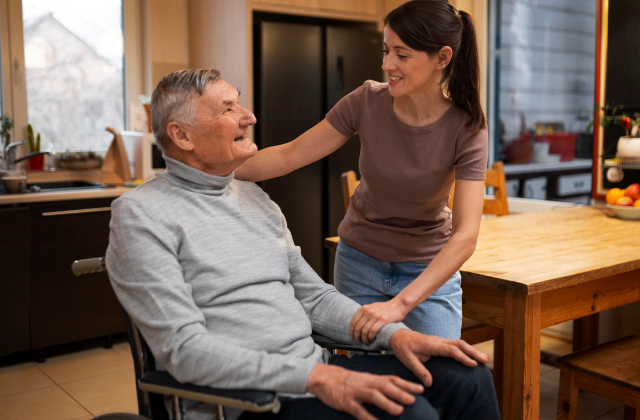How to Prevent Caregiver Burnout: Essential Tips for Family Caregivers
Caring for a loved one is a heartfelt demonstration of love and commitment. However, this noble endeavor often brings about significant physical and emotional challenges. If these challenges remain unaddressed, they can lead to complete exhaustion. Preventing caregiver burnout is not merely a suggestion — it is a vital step in maintaining emotional stability and ensuring the highest quality of care. In this article, we will delve into practical and insightful strategies for caregiver stress management, highlight key warning signs, and provide effective tools to restore balance in your life.
Understanding Caregiver Burnout: What It Is and Why It Matters
Caregiver burnout is characterized by a state of physical, mental, and emotional fatigue that arises from prolonged stress and insufficient respite. Family caregivers, in particular, are at risk, often neglecting their own needs in favor of others.
Common signs of caregiver burnout include:
- Persistent fatigue, even after adequate rest
- Increased irritability, frequent crying, or feelings of guilt
- A noticeable decline in motivation or interest in previously enjoyable activities
- Physical symptoms like headaches, muscle tension, and disruptions in sleep
- Feelings of isolation and loneliness, even when surrounded by others
“Burnout is not a weakness — it’s your body and mind’s way of saying you’ve cared for others while forgetting yourself.” — Angel Care Inc. NY

The Consequences of Ignoring Caregiver Stress
Understanding caregiver health and wellness tips is crucial not only for your own well-being but also for the health of those you care for. When caregivers become overwhelmed and emotionally drained, the risks of mistakes increase, relationships can suffer, and the quality of care provided may decline. If left unchecked, caregiver stress can lead to:
- Worsening of chronic health conditions
- Heightened risk of depression and anxiety
- Decreased attention and compassion in caregiving
- A pervasive sense of failure or a desire to give up
Practical Tips to Avoid Caregiver Burnout
Implementing caregiver self-care strategies is essential for sustaining your well-being. Here are some effective recommendations to help you navigate the challenges of caregiving:
- Set Clear Boundaries: Learn to say “no” when necessary. Acknowledge that you cannot do everything, and that’s perfectly acceptable.
- Delegate Responsibilities: Seek help from friends or family. Even a brief respite can lead to significant rejuvenation.
- Take Scheduled Breaks: Allocate 15–30 minutes daily for silence and rest to reset your mind and spirit.
- Prioritize Physical Health: Focus on:
- Getting 7–8 hours of sleep per night
- Consuming balanced meals
- Engaging in light exercise, such as yoga or walking
- Maintain Social Connections: Participate in support groups or connect with friends for emotional support, which is crucial for stressed caregivers.
- Practice Mindfulness: Incorporate breathing exercises, journaling, and meditation into your routine to alleviate mental overload.
Managing Caregiver Mental Health: Building Emotional Resilience
To effectively manage caregiver mental health, cultivate emotional awareness and engage in personal reflection. Consider the following:
- Let go of guilt associated with feelings of frustration.
- Discuss your experiences openly with a therapist, friend, or support group.
- Accept your limitations and recognize that perfection is not a requirement.
- Carve out time for joy through movies, books, hobbies, or simply enjoying a quiet cup of tea.
“The best thing you can do for your loved one is not to lose yourself in the process of caring for them.” — Angel Care Inc. NY
Support Systems for Family Caregivers
Remember, you do not have to face caregiving challenges alone. Angel Care Inc. NY offers:
- Individual consultations for personalized home care planning
- Access to qualified home care professionals
- Educational resources aimed at preventing family caregiver exhaustion
- Respite care services to ensure you can rest and recharge
Caregiver Wellness Plan: Build Your Personal Balance Strategy
Create your own caregiver wellness roadmap:
| Wellness Area | Actions to Take |
| Emotional health | Talk, journal, connect with a therapist |
| Physical well-being | Sleep, eat well, stay active |
| Social engagement | Stay in touch with friends, join a group |
| External support | Use Angel Care services, ask for help |
You Matter Too
Preventing burnout is the key to sustainable caregiving, personal fulfillment, and self-respect. As emphasized by Angel Care Inc. NY, caring for yourself is integral to providing excellent care for those you love.
“Compassionate caregiving begins with compassion for the caregiver.”
If you find yourself feeling overwhelmed or nearing your emotional limits, remember — you are not alone. Reach out to Angel Care Inc. NY for the support you need, enabling you to continue offering care to those who matter most to you.

Depression is a complex and often overlooked mental health issue for older adults that has substantial implications for physical health, quality of life, and emotional wellness. Comprehensive elderly depression care at home requires individualized and multifaceted approaches that are geared toward an integrated intervention of medical care, professional caregiving, psychological care, as well as creating a safe and supportive home environment. In this article we outline the best approaches for how to manage depression in older adults and what home care for elderly mental health can do to help give joy and purpose back to daily life. Recognizing Depression in the Elderly: Symptoms and Challenges Depression in seniors often masked as physical symptoms or deterioration of cognitive function can make timely identification of depression difficult. Key indicators of elderly depression include: Chronic fatigue and insufficient energy Changes in sleep and appetite Loss of interest or pleasure in activities that were enjoyed Isolation or withdrawal from social interactions Hopelessness and sadness Identifying early indicators of these symptoms is critical to avoid additional complications as a result of inadequate intervention. How Home Care is Important to Elderly Mental Health Elderly mental health home care services provide comfort, safety, and focused engagement that are often elusive in a long-term care setting. The home setting is familiar and promotes emotional balance and lower stress levels as well as a sense of independence. "Helping seniors suffering from depression in their own homes is an important element of successful treatment and recovery."—Angel Care Inc. NY Effective Care and Enabling Therapy Approaches for Elderly Depression Medication and Monitoring The treatment of depression experienced by seniors may mean that they require careful medical supervision and care to support them at home, as well as assessments to ensure they are taking medication in a timely manner and evaluating medication for effectiveness. Psychological and/or Emotional Support Elderly emotional support at home must involve the delivery of regular contact, ongoing support in promoting goal directed social and creative activities, and some form of assistance in times of distress. Professional caregivers can help attempt to overcome anxiety and loneliness. Therapeutic Programs at Home Caring for seniors with depression at home that may convert into therapy - individualized therapeutic sessions, working with a psychologist or therapist, at home - can also positively contribute to enhancing their emotional resilience, and will help establish coping strategies to deal with negative and unhelpful emotions and thoughts. Exercise and Routine Light exercise and walks, and having scheduled daily activities, can improve emotional wellbeing and overall elderly quality of life. Recognizing Depression and/or Emotional Distress, and When to Seek Support Family and caregivers should recognize changes in behavior and mood with elderly clients. Early Activation, and subsequent diagnosis and treatment, is necessary for effective depression treatment for seniors. Tips to consider: Monitor for changes in sleep, appetite, and activity People slowly withdraw from contacts and stop talking Physicians may misdiagnose a serious medical condition so report any symptoms immediately Don't delay getting help Benefits of Home Care with Angel Care Inc. NY Angel Care Inc. NY provides continuous comprehensive mental health care for elderly at home services with superior benefits: Comprehensive individualized based care plans that consider the psycho-emotional; Continuing support services and professional assistance 24/7 knowledge and experience in mental health training; Teaching families and caregivers ways to support seniors effectively; Coordinating care and treatment with any medical professionals "At Angel Care Inc. NY our goal is to make every day of a senior's life a day filled with care, understanding, and support."—Angel Care Inc. NY. Conclusions Caring for elderly persons with depression can be challenging work as there are many complex demands and barriers to overcome to provide the necessary care and support. Elderly at home home care for mental health care and treatment continues to be a supported, reliable solution and provides elderly seniors with quality of life and emotional support to ensure they maintain their improved emotional well-being while being in a familiar location and home. If you or your loved ones are dealing with depression, do not be afraid to ask HHA for help — together we can bring back lightness and joy to every day.

Meditation is commonly regarded as a hobby for young, busy professionals and spiritual seekers, but it also offers valuable benefits for older adults. Indeed, meditation for seniors is becoming more popular as an exciting way to promote mental clarity, emotional health, and physical relaxation. This blog focuses on how older adults begin meditating, benefits of meditation for seniors, and useful techniques to improve their everyday lives. How to Begin Meditating for Seniors Starting to meditate may seem overwhelming for seniors at first, but with a good approach it can be an easy and enjoyable way to practice! Here are some simple detailed steps older adults can take to get started on meditation: Find a Comfortable Environment Begin by finding a quiet, comfortable space with minimal distractions. This may be a particular corner of the living room, a reclining rocking chair, or even a space in the garden. Make sure the area is peaceful and familiar, with soft lighting and minimal noise interruption. Set a Time Part of the value of meditating is to practice consistently. If you're going to start meditating, begin with 5-10 minutes a day and slowly extend as confidence in the practice develops. The morning or before bed are generally great times to meditate. Focus on breath One of the simplest forms of meditation is solely focusing on breath. A senior can breathe in deeply through their nose, hold for a few seconds, and then slowly breathe out. This focuses the mind on calming down and helps to relieve stress or upset thoughts. Try guided meditations Guided meditations are great for seniors who are new to the practice. Most mediation apps or online sources have a guide or a voice to follow. Anything with specific step by step instructions will be smoother and make the senior feel more comfortable with meditating. Patience Like anything else, meditation requires time and practice to be effective. It is completely normal for the mind to wander (this is particularly true at the beginning) so remind seniors to be patient with themselves and not give up! Benefits of Meditation for the Elderly The benefits of meditation for the elderly are profound, spanning both mental and physical health. Here are just a few of the many advantages: Benefit Description Reduces Stress and Anxiety Meditation helps seniors manage stress by calming the nervous system and promoting a sense of relaxation and peace. Improves Sleep Quality Regular meditation can improve sleep quality by calming the mind and reducing racing thoughts, helping seniors fall asleep more easily. Boosts Memory and Focus Meditation can increase brain plasticity, which helps seniors enhance memory retention, cognitive function, and mental clarity. Improves Emotional Well-being Mindfulness for elderly individuals helps boost their mood by encouraging positive thinking and emotional resilience. Promotes Physical Relaxation Relaxation exercises for seniors, such as body scans and mindful breathing, reduce muscle tension and promote overall physical relaxation. Improves Heart Health Meditation has been linked to lower blood pressure, improved circulation, and reduced risk of heart disease, all of which benefit seniors’ health. Meditation Practices for Seniors There are so many different types of meditation practices; seniors can try different types of meditation practices to find what works for them. Some common practices include: Mindful breathing Mindful breathing is likely one of the easiest and most basic meditation practices. The senior can sit comfortably and simply focus on their breath, focusing primarily on inhales and exhales. Mindful breathing can help create mindfulness and allow the senior to develop mindfulness of their own body and thoughts. Progressive muscle relaxation This involves tensing and relaxing muscle groups throughout the body to release stress and tension. Progressive muscle relaxation is a great practice for seniors with any physical discomfort or symptoms due to stress. The practice can allow seniors to deeply unwind and feel more comfortable. Loving-Kindness Meditation (Metta) This meditation concentrates on generating feelings of love and compassion for oneself and others. Seniors may envision sending love and benevolence to their loved ones, friends or even a stranger creating a positive like-minded mental atmosphere. Guided Imagery Guided imagery is when one focuses on some pleasant and peaceful mental images. Consider a senior imagining they are walking through a forest, relaxing at the beach, or sitting in a serene garden. This is a pleasant and quite helpful way to promote inner peace. Senior Meditation Classes: A Great Way to Begin Many communities and wellness centers offer senior meditation classes. These classes are tailored specifically for seniors and modifications are made based on physical limits. These classes offer an organized and supportive environment to practice mindfulness. Working together in a group format, foster a sense of connection and community that can help with feelings of isolation in older adults. Senior meditation classes often have a variety of meditation styles and breathing/relaxation techniques that can be practiced or experienced. The Value of Meditation and Seniors Meditation is a helpful, powerful, and simple practice that offers countless physical, emotional, and mental benefits for seniors. Whether to improve sleep patterns, lessen tension, or improve cognitive function; meditation can be a helpful, simple tool to maintain health and well-being as you age. Beginning with a few minutes each day and practicing with multiple methods, seniors can lead a more peaceful, calm, and focused life. If you are searching for a home care agency for yourself or a loved one, the HHA unit of Angel Care is here to help. Please don't hesitate to reach out to us today for a consultation.



